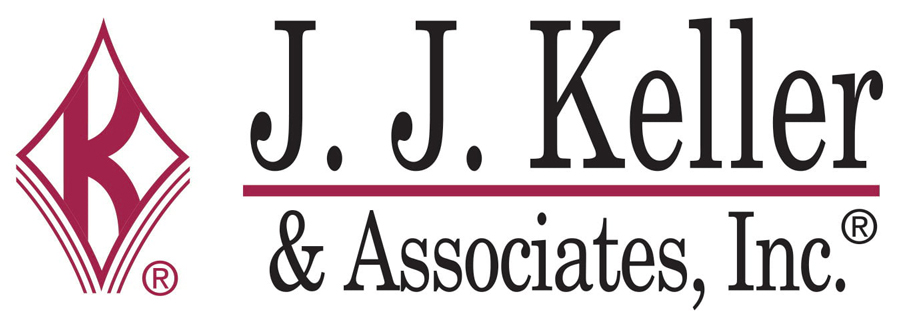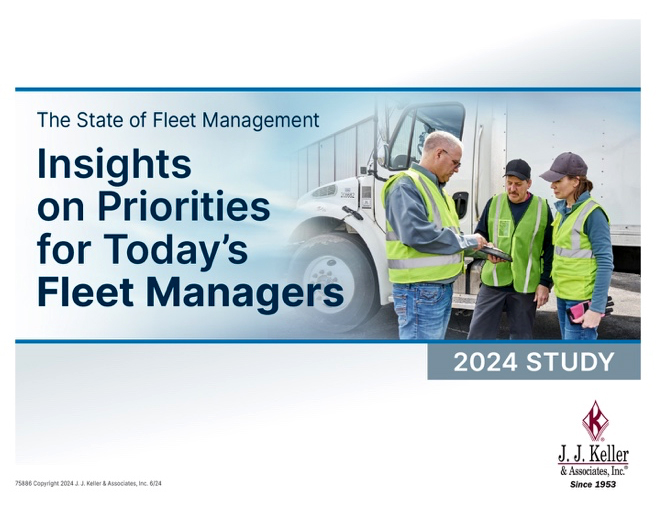- Details
- Category: Industry News
Have a 2024 event that you’d like to share? Let us know! Send an email to susan@chauffeurdriven.com or rob@chauffeurdriven.com and we’ll add your meeting/conference to our list of events in the monthly magazine, in our weekly newsletter, and on our website.
JULY
7/9
CLA Summer Conference (Denver)
cololimo.org
7/16
ILLBA Coffee With ILLBA (online)
illba.org
7/17
PRLA Summer Meeting (King of Prussia)
prlainc.org
7/22-7/24
GBTA Convention (Atlanta)
convention.gbta.org
7/30
NELA Topgolf Networking Event (Canton, Mass.)
nelivery.org
AUGUST
8/19
GALA Golf Tournament (Roswell)
galalimo.org
8/20
MLA General Meeting (Baltimore)
mdlimoassoc.org
8/27
VLA Fishing Trip (Virginia Beach)
virginialimousineassociation.org
[07.02.24]
- Details
- Category: Industry News

A newly released study conducted by the J.J. Keller Center for Market Insights found that fleet managers struggle to keep up with the rapidly changing regulatory environment, which is also having an impact down the line with training drivers and staying in compliance.
The study, The State of Fleet Management: Insights on Priorities for Today’s Fleet Managers, is based on a survey fielded in February 2024. Download the study here.
The report highlights trending concerns from 2021 to 2024, and takes a close look into fleet managers’ current challenges:
- Struggling with hours-of-service (HOS) limits and use exemptions jumped 13 percent from 2023 to 2024.
- Finding and retaining high-quality drivers remained a top item from prior years and grew 12 percent from 2023.
- Understanding how the Federal Motor Carrier Safety Administration (FMCSA) regulations specifically apply to them stayed on the list of top concerns, increasing 9 percent year-over-year.
“Despite widespread use of electronic logs, hours-of-service compliance remains a key issue, with HOS violations making up over 40 percent of all roadside violations and nearly 1 in 5 violations found during audits in 2023. Toss in a variety of exceptions, and it’s no wonder that drivers struggle with HOS compliance,” says J.J. Keller Senior Industry Advisor Daren Hansen.
Additional Findings of the Study:
Accurate & Well-Organized Recordkeeping Remains a Challenge: For two years in a row, the most important aspects of FMCSA compliance remain unchanged. Forty-seven percent of fleet managers said that “Having accurate and well-organized Driver Qualification files” was the most important aspect of FMCSA compliance. This was up 5 percent from 2023.
Improving the Knowledge & Skills of Drivers Is an Ongoing Focus: Sixty-five percent agree that continuous learning is “mostly” or “completely” emphasized by their company. When it comes to driver training, respondents believe it’s most important that their training is specific to the unique needs of their drivers, operations, vehicles, or industry (47 percent) and that drivers apply what they learn in training (45 percent).
Training: Respondents stated a strong desire for drivers to access training whenever and wherever it’s needed with minimal disruption to daily tasks. Other training issues cited were having accurate and well-organized training records (30 percent); having engaging and interesting training (28 percent); and being able to prove, if needed, that a driver understood the training content (25 percent).
Recommendations From the Study
The most important aspect of overall safety that fleet managers want to see is leadership consistently showing that safety is important (51 percent). A close second is employees knowing that they are valued, and that is why fleet managers want them to be safe (46 percent).
A proactive approach, including training, to building a safe and compliant fleet, can minimize the impact of litigation by helping carriers uphold their “duty to act”—a primary consideration for a jury. A “duty to act” means that you should have been aware of and corrected any safety issues before they resulted in incidents.
“The most successful carriers leverage dash cams, electronic logging devices, and telematics data to find and fix compliance and performance issues leading to prevention of crashes, citations, and unnecessary turnover,” says Senior Editor Mark Schedler.
As the risk of “nuclear verdicts” and FMCSA audits continues to increase, fleet managers are likely to continue to prioritize staying up to date with regulatory requirements and improving driver knowledge and skills.
“Driver safety and regulatory compliance were top trends in both the 2024 data and our findings from previous years of research,” says Head of Corporate Communications Susan Baranczyk. “Our purpose at J. J. Keller is to protect people and the businesses they run. We understand that ensuring safety for drivers and the public is a critical challenge for fleet managers, and we applaud the focus and efforts of our survey respondents to keep their teams and others safe.”
Visit jjkeller.com for more information.
[07.02.24]
- Details
- Category: Industry News
The US Chamber of Commerce, in conjunction with MetLife, has released its latest Small Business Index (SBI) for Q2 2024. The SBI is a survey of small businesses nationwide on numerous topics that have been impacting them during the past few months, including fiscal issues and operational challenges.

According to the quarterly survey, the SBI hit its highest score since early 2020, demonstrating a sense of optimism about the future business climate. The index score jumped to 69.5 from 62.3 last quarter. Seventy-three percent of small businesses expect their revenue to increase in the next year, which is the highest reading recorded since 2017. Nearly half (46 percent) say they expect to increase investment in the next year, up 10 percentage points from last quarter (and just one percentage point lower than its all-time high in Q4 2022).
Once again, 55 percent of small businesses report that their largest concern continues to be inflation—for the eighth straight quarter. However, revenue remains the second biggest challenge for small businesses at a distant 26 percent. This is the third consecutive quarter where revenue ranked as the second biggest challenge.
Interestingly, technology is at the forefront of small business owners’ minds, as the report shows that 71percent of small businesses believe that hiring workers with AI skills will save them time in the long run. Gen Z- and millennial-owned small businesses (52 percent) are much more likely to report they are very familiar with AI compared to Gen X-owned (36 percent) and baby boomer and older-owned (19 percent) small businesses.
Other key findings:
- 36 percent of small businesses say the US economy is in good health this quarter
- 67 percent of small businesses report that the overall health of their business is good, unchanged from last quarter
- 22 percent of small businesses say they have increased staff in the past year, up slightly from last quarter
The full report is available here.
Visit uschamber.com for more information.
[07.02.24]


